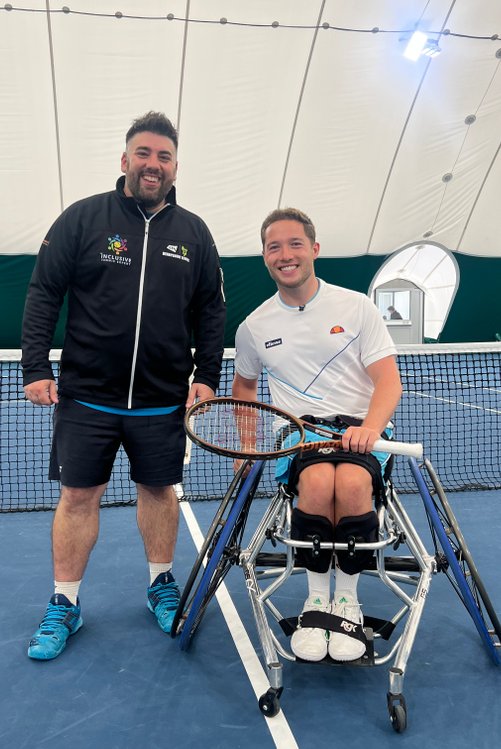
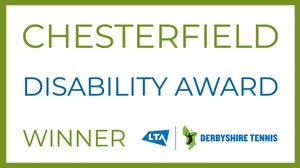
Access Tennis For All with our SEND Tennis Programme
Our inclusive tennis programme welcomes children and adults with Autism, various learning, and physical impairments. Under expert guidance, participants engage in tennis activities promoting physical coordination, social interaction, and self-esteem. The adaptive nature of our program ensures a supportive environment, enabling everyone to enjoy the benefits of tennis, regardless of their abilities. Experience a world where tennis transcends barriers, nurturing personal and communal growth.
Wheelchair Tennis
It’s one of the fastest-growing wheelchair sports in the world, and we reckon it’s the most fun, too – welcome to wheelchair tennis!
For those new to the game, it’s almost identical to tennis apart from one key rule: wheelchair tennis players are allowed to let the ball bounce twice.
To give players more freedom, only the first bounce needs to be within the lines of the court as well.
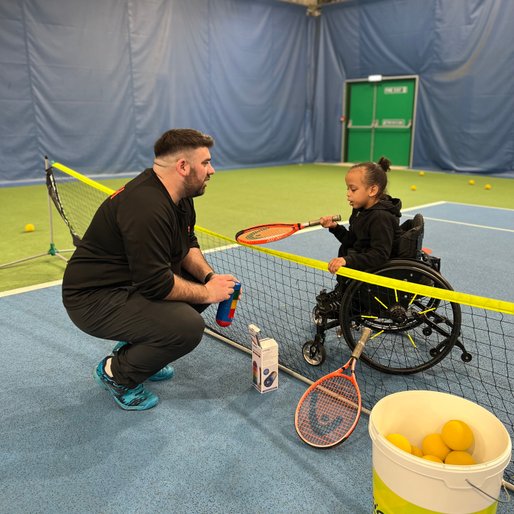
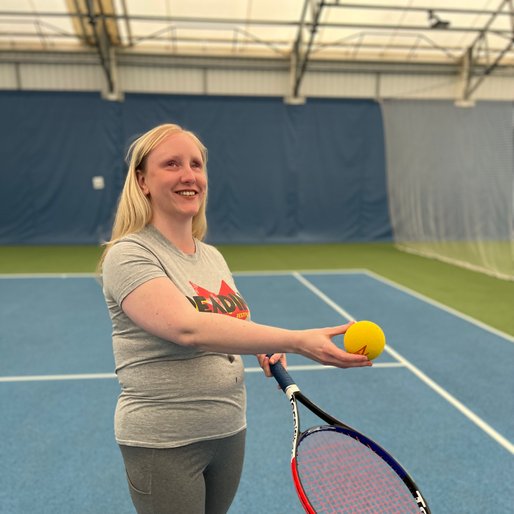
Visually Impaired
Visually Impaired tennis (also known as VI tennis, Sound tennis or Blind tennis) is one of the leading sports for blind and partially sighted people in the UK.
VI tennis was created in Japan in 1984 and has become popular across the world – it’s now played in more than 30 countries and has ambitions to become a future Paralympic sport.
This format of the game is different to traditional tennis – it’s played on a smaller court with a lower net. Some courts also have tactile lines (B1 only) – so players can touch them – and players also use an audible tennis ball that makes noise so they can hear it bounce and being hit.
Deaf Tennis
Deafness is the condition of having impaired hearing. The word deaf is used to describe or identify anyone who has a severe hearing problem. Sometimes it is used to refer to people who are severely hard of hearing too. Deafness is a hidden impairment, and it is sometimes hard to know whether someone has a hearing impairment and that they may require additional communication support. It is important to remember that each deaf person has different requirements and adjustments so ensure you find out more about the deaf persons individual communication needs/requirements.
People who are deaf have different levels of hearing loss, from mild to profound deafness – but everyone is welcome in tennis. Every deaf person is different with some being hearing aid users and others having a cochlear implant, and some may sign, some may lipread, some may listen, and some may speak. Some may well do all of these.
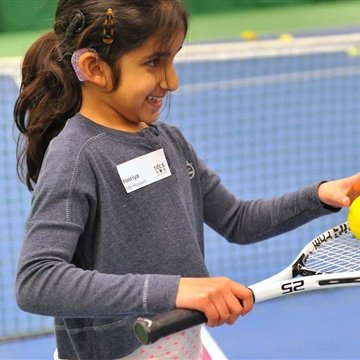
Mental Health & Long-Term Illnesses
Therapeutic Tennis: Nurturing Resilience and Wellness.
Our tennis programme, designed for children and adults facing mental health challenges or long-term illnesses, offers a therapeutic outlet. Participants can enjoy physical exercise, social interaction, and a sense of accomplishment, fostering overall well-being. The programme provides a supportive atmosphere to explore the rejuvenating essence of tennis, promoting resilience and a positive outlook.
Copyright © All Rights Reserved
